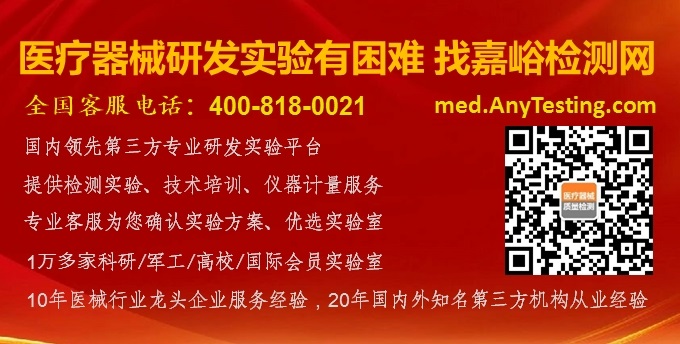欧洲理事会已经批准了一项提案,旨在延长MDR(欧盟医疗器械法规)的医疗器械过渡期,并取消MDR和IVDR(欧盟体外诊断医疗器械法规)关于停售现有产品的规定。
3月7日,欧洲理事会以27:0的投票结果,通过了欧洲议会和欧盟委员会提出的这一提案。2月16日,欧洲议会以537:3的投票结果,批准延迟MDR的过渡期,以此避免经济区内数以万计的产品被迫停售的可能。
瑞典卫生保健部长Acko Ankarberg Johansson在新闻稿中提到,“今天我们通过了一项提案,使行业能够继续为市场引入必要的医疗器械,并保证患者能够安全地使用医疗器械。”
该提案已于1月6日经欧盟委员会批准。MDR的过渡期将在接下来的几年内终止。随着终止日期的逼近,利益相关者对医疗器械的供应、公告机构的服务容量和制造商的准备状态感到担忧,这促成了延长过渡期的举措。
接下来,这一提案将发布在《欧盟官方公报》上,届时提案将立即生效。据此,III类器械和IIb类植入性器械的过渡期将延长至2027年12月,IIb类非植入性器械、IIa类和I类器械需要在2028年12月之前完成过渡,III类定制植入性器械需要在2026年5月之前完成过渡,MDR和IVDR针对产品停售的要求将不再适用。
Qserve集团的执行董事Gert Bos提醒医疗器械制造商,即使MDR的过渡期延期,也没有时间可以浪费,制造商应当努力向公告机构最终确定相关资料,并确保临床数据能够充分证明产品预期用途的实现。
“延期旨在为公告机构预留足够的时间,使其能够利用稀缺的资源,完成所有必要的符合性评估,”他告诉Focus。“延期的初衷并非是为行业留出更多时间,制造商应当在大约一年的时间内准备好审核资料,这样才能与合作的公告机构签署审核合同。”
Team-NB副总裁、TÜV SÜD监管战略全球负责人Sabina Hoekstra-van den Bosch特别指出,医疗器械协调小组(MDCG)在其MDCG 2022-14立场文件中提出了几项措施,帮助公告机构更高效地利用它们的可用资源。她说道,当大家把注意力都集中在法规的修改时,这些措施可能会被置于次要地位,她对此表示担忧。
Hoekstra-van den Bosch告诉Focus,“要想成功实现过渡期延长的作用,MDCG 2022-14提出的部份措施仍然必须付诸行动,如果目前实施状态还不理想的话。”“以下MDCG 2022-14提议有助于成功实施修订后的法规:例如,帮助制造商和公告机构开展结构性对话;在MDR与原指令相比没有变化的情况下,利用公告机构此前根据原指令已经评估的证据;审核现有的MDCG指南,修改/删去不清晰的内容或其他有改善空间的规定,向制造商和公告机构明确MDCG新指南的实施时间。”
这则消息不仅仅让欧洲的利益相关者松了一口气。大西洋彼岸的医疗器械游说集团AdvaMed也对欧洲理事会通过提案的决定作出了评价。
“欧洲理事会今天的投票结果给了医疗行业一个继续挽救和改善欧洲患者生命的机会。在全球范围内,欧盟市场是提供优质患者护理服务、研发及器械获取通道的卓越市场之一,每年服务数百万患者,因此正确实施MDR至关重要,”AdvaMed的首席执行官Scott Whitaker在一篇新闻稿中说道。“我们与MedTech Europe合作,充分解决一些遗留问题,包括进一步明确向公告机构提交申请的流程以及如何证明证书有效期的延期。”
“我们也在努力解决实际的执行问题,比如欧盟市场上罕见器械和小众器械的可及性,”他补充道。“这个决定为帮助世界各地的患者向前迈出了坚定的一步,AdvaMed将继续支持稳健的欧盟监管计划,用及时、可预测的方式促进创新并改善患者获取治疗的机会。”
Gert Bos是RAPS的主席,Sabina Hoekstra-van den Bosch是RAPS的一名理事。RAPS是一个无党派、非营利的专业协会。他们的评论仅代表个人观点。
© 2023 Regulatory Affairs Professionals Society.
英文原文
The European Council (EC) has approved a measure to extend the transition period for medical devices under the Medical Devices Regulation (MDR) and to remove the sell-off provisions for existing products as required under MDR and the In Vitro Diagnostic Medical Devices Regulation (IVDR).
On 7 March, the Council voted 27-0 to adopt the measure put forward by the European Parliament and Commission. The parliament voted 537-3 on 16 February to push back the MDR transition period to avoid potentially forcing tens of thousands of products off the market in the economic region. (RELATED: European Parliament votes to extend MDR transition period, Regulatory Focus, 16 February 2023)
“Today we have agreed on measures that will allow the industry to continue bringing essential medical devices to the market and ensure that patients have safe access to medical devices,” Acko Ankarberg Johansson, Swedish minister for health care, said in a press release.
The measure had already been approved by the European Commission on 6 January. With the looming MDR transition deadlines coming up in the next few years, stakeholders have raised concerns about the supply of medical devices, notified body capacity and manufacturer preparedness, which prompted the move to extend the transition period. (RELATED: European Commission moves to delay MDR transition, 6 January 2023)
The measure will next be published in the Official Journal of the European Union, at which point it will go into immediate effect. It would extend the transition deadline for Class III and IIb implantable devices to December 2027; Class IIb non-implantable devices, and Class IIa and Class I devices would need to transition by December 2028; Class III custom-made implantable devices would need to transition by May 2026; and the sell-off requirements for products under MDR and IVDR will no longer apply.
Gert Bos, executive director of the Qserve Group, cautioned medical device manufacturers that even with the MDR deadline extensions, there’s no time to waste and they should be working diligently to finalize their dossiers to notified bodies (NB) and ensure they have enough clinical data to prove their product works as intended.
“The intention of the extension is to allow sufficient time for the notified bodies to use their scarce resources to complete all needed conformity assessments,” he told Focus. “It is not intended to give much time for industry, as their dossiers should be ready for review in about a year’s time in order to get a signed agreement for the work from the notified body they work with.”
Sabina Hoekstra-van den Bosch, vice-president of Team-NB and global director of regulatory strategy at TÜV SÜD, noted that the Medical Device Coordination Group (MDCG) has proposed several measures in their MDCG 2022-14 position paper that allow notified bodies to use their available capacity more efficiently. She said she is worriee that those measures may be pushed into the background as all the attention is focused on legislative changes.
“To allow extension of the transition timelines to be successful, it is still necessary that some proposed measures of MDCG 2022-14 be put into action, if this has not happened yet,” Hoekstra-van den Bosch told Focus. “Proposals from 2022-14 that could contribute to the success of the amending regulation are for instance: allowing structured dialogue between manufacturers and notified bodies, leveraging evidence that notified bodies have already assessed under the Directives and where there is no change in the MDR as compared to the Directives, review of existing MDCG guidance and amending/removing unclarities and/or other provisions that could be improved and giving clarity to manufacturers and notified bodies on when a new MDCG guidance document will become applicable.”
The news was not just a sigh of relief for stakeholders in Europe. Across the pond, the medical device lobby group AdvaMed also commended the EC’s decision to adopt the measure.
“Today’s vote by the EU Council gives the medtech industry the opportunity to continue saving and improving the lives of patients in Europe. The EU is one of the world’s preeminent markets for quality patient care, R&D, and access, serving millions of patients annually, so it’s critical that MDR implementation is done correctly,” said AdvaMed CEO Scott Whitaker in a press release. “Together with MedTech Europe, we’re working to fully address several remaining issues, including a clearer process for submitting applications to notified bodies, as well as greater clarity on how certificate extensions can be demonstrated.”
“We are also working to address practical implementation issues, such as access to ‘orphan’ and niche devices in the EU market,” he added. “This is a strong step forward for patients worldwide, and AdvaMed will continue to champion a robust EU regulatory scheme that fosters innovation and patient access to treatment in a timely and predictable manner."
Gert Bos is the chair of RAPS and Sabina Hoekstra-van den Bosch is a director of RAPS, a nonpartisan, nonprofit professional society. Their comments represent their views only.
© 2023 Regulatory Affairs Professionals Society




